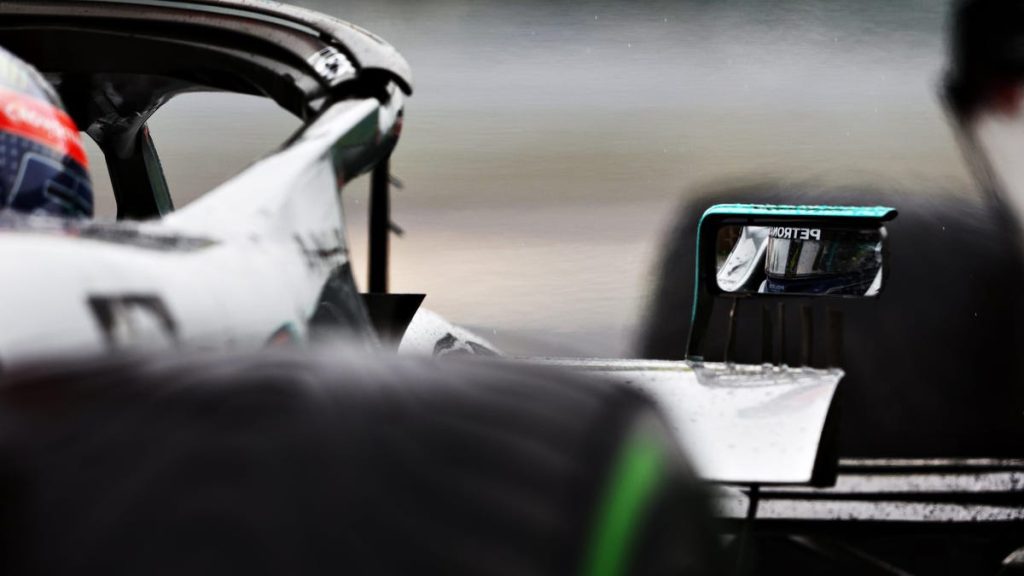Formula 1 Wants to Trade Mirrors for Screens

Sure, the mirror looks clear at a standstill. What about at 180 mph and porpoising?Photo: Mark Thompson (Getty Images)
Rear-view cameras might be coming soon to the racing cars of Formula 1. Ensuring rear visibility for F1 drivers against their team’s efforts to maximize car performance has always been difficult for rule-makers. For the 2023 season, the FIA has mandated that F1 teams will have to install mirrors that are 50 millimeters (1.97 inches) wider on their cars. This regulatory change moves the mandated width of wing mirrors from 150 millimeters (5.90 inches) to 200 millimeters (7.87 inches). However, international motorsport’s governing body sees a digital screen future for the world championship.
Motorsport.com reports that the FIA is contemplating a future with a mandatory rear-facing camera system for Formula 1 cars. The site asked Nikolas Tombazis, the FIA Single-Seater Technical Director, about the idea. Tombazis sees three key issues standing in the path of implementation. He said:
“We have given it consideration. It’s got three issues that need to be resolved. One is that there’s not much space for a TV screen in the cockpit. Second, it’s used sometimes in closed cockpit cars which have rather dark conditions inside, you can see if you put your phone in sunlight, you don’t want the drivers squinting to see if they can see something. So there’s that. Then, the third thing is that there’s a time of adaptation of your focus from one distance to another distance, which we’re also a bit concerned and we need to evaluate carefully.”
To summarize, screen placement in the tight confines of an F1 cockpit, screen visibility in the sun-drenched cockpit and quick object recognition on-screen are the main problems that need to be tackled. Though for now, the FIA will continue to use the technical regulations to maintain the effectiveness of traditional mirrors, so they won’t be viewed by engineers as solely aerodynamic devices.



